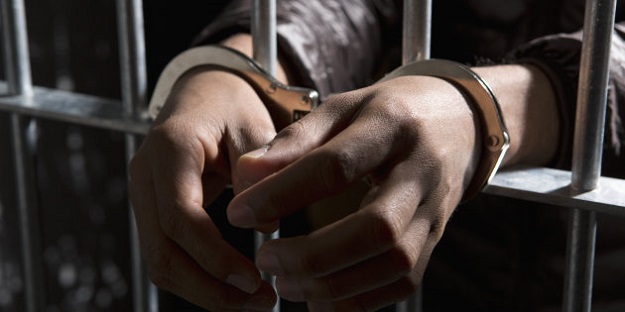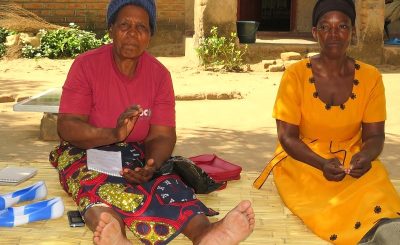“Am so afraid, very much afraid for my child’s father. My child will not be able to grow with her father, who is serving a 14 year custodial sentence,” Eliza (name withheld) starts her extremely miserable account.
Eliza, 14, was impregnated by a 15 year-old boy who was then arrested, tried and convicted for ‘defilement’.
Eliza, a standard seven learner at one of the primary schools in Mulanje district recounts that it was in January, 2017 when the boy, her schoolmate at the time, impregnated her during one night when the two were playing hide and seek.
Her parents reported the matter to police and the boy was consequently arrested.
With tears going down her flat and tender cheeks, Eliza says that although she has returned to school it is hard for her to concentrate and sometimes thoughts of dropping out hit her due memories of the father to her one year old daughter.
“His parents are bad, they are the cause of it,” she says with rage written all over on her blameless face.
A further chat with Eliza reveals that events surrounding the arrest of the young man are just one sad example of how ignorance can lead to injustice.
“His parents-believing they were helping him-enticed him to increase his age from 15 to 19. Their thinking was that the laws of the land do not criminalise those who have made love at a legal age,” Eliza narrates.
Eliza, who by that time was being represented by the state, recalls how the magistrate tried to persuade the boy to tell the court nothing but the truth.
“The magistrate tried his best but my boyfriend did not want to hear anything other than what he was instructed by his ill-informed parents that revealing his real age could send him to jail.”
Father to the imprisoned young boy pushes the blame to the prosecutor.
“It’s 11 months already since the magistrate hit the gavel to confirm the imprisonment of my son, but I blame the prosecutor, he is the one who enticed by boy to up his age to 19” he says.
Unfortunate but true, the 15 year old was sent to Makande prison in Thyolo district. A widely held assumption could be that if the boy and his family knew the law, he could have been sent to a reformatory center such as at Mpemba in Blantyre or Bvumbwe in Thyolo.
When asked whether he ever thought of hiring a lawyer for an appeal, the boy’s father was so surprised because he doesn’t know anything about lawyers and how they could come to his son’s rescue.
“I’ve never heard of lawyers . Even if I knew where could get the money for that? Look at my tattered shirt, do I like one who can afford that?” he asks.
The Executive Director for the Center for Human Rights Education Advice and Assistance – CHREAA, an organization that promotes the welfare of inmates in the country’s prisons, says it is unfortunate that the boy lied about his age and was tried as an adult.
Victor Mhango explains: “It would be hard to conclude that his trial was unfair because at the time he was appearing in court, the court was meant to believe that he was an adult and it could only deal with him as such.”
“That is why he was sentenced. If the court knew that he was a child he would not have been ordered to go to prison. However, the courts-when they are faced with an accused person who appears to be a child-have to make an inquiry on to the age of the child.”
“The courts usually rely on evidence of the parents. In the case in question the parents confirmed that the boy was an adult thus the court had no option but to deal with him as such,” he adds.
On the other hand, Mhango says lack of access to information on legal terms and procedures to most people in the country is a very huge challenge than one would assume.
He discloses that many people are in jail due to ignorance of the law, being deprived of opportunities, access to basic resources and a voice in decision-making.
“It is unfortunate that in Malawi people are not provided with legal aid services for such serious offences. Legal aid is only limited to homicide cases. If the boy or his parents had legal aid at the time of trial they would have been properly informed. Conversely, this case needs to be brought before the High Court for review and an urgent application to remove free him,” he adds.
Simple mathematics will tell you that if nothing happens-by the time he will be done with his 14 jail time the 15 year boy will be at 29- thus he will come out of prison with a wasted future.
Chapter IV, 42(1) of the constitution of Malawi stipulates that every person who is detained, including every sentenced prisoner, shall have the right to consult confidentially with a legal practitioner of his or her choice, to be informed of this right promptly and, where the interests of justice so require, to be provided with the services of a legal practitioner by the State.
Nonetheless, a 2011 report by the United Nations office on Drugs and Crime on access to Legal Aid in Criminal Justice Systems in Africa reported that legal advice, assistance, representation, education and mechanisms for alternative dispute resolution remains agreat challenge in most African countries, Malawi inclusive.
The report also says that a large number of lawyers in these countries reside in urban areas, where the majority of the population live in rural or peri-urban areas. As a result most people live outside the reach of lawyers who can provide them with legal aid services.
Now the question that everyone must answer is; how many innocent lives are there rotting in prison just because they failed to defend themselves due to ignorance, lack of legal representation and knowledge though having a right to be provided with legal aid as stipulated in the constitution?
Or should one say, Malawi is waiting to be reminded that justice is not a luxury and that time is now up for the country to intensify awareness campaigns on legal issues so as to avoid any reoccurrence of what happened to this poor boy?





